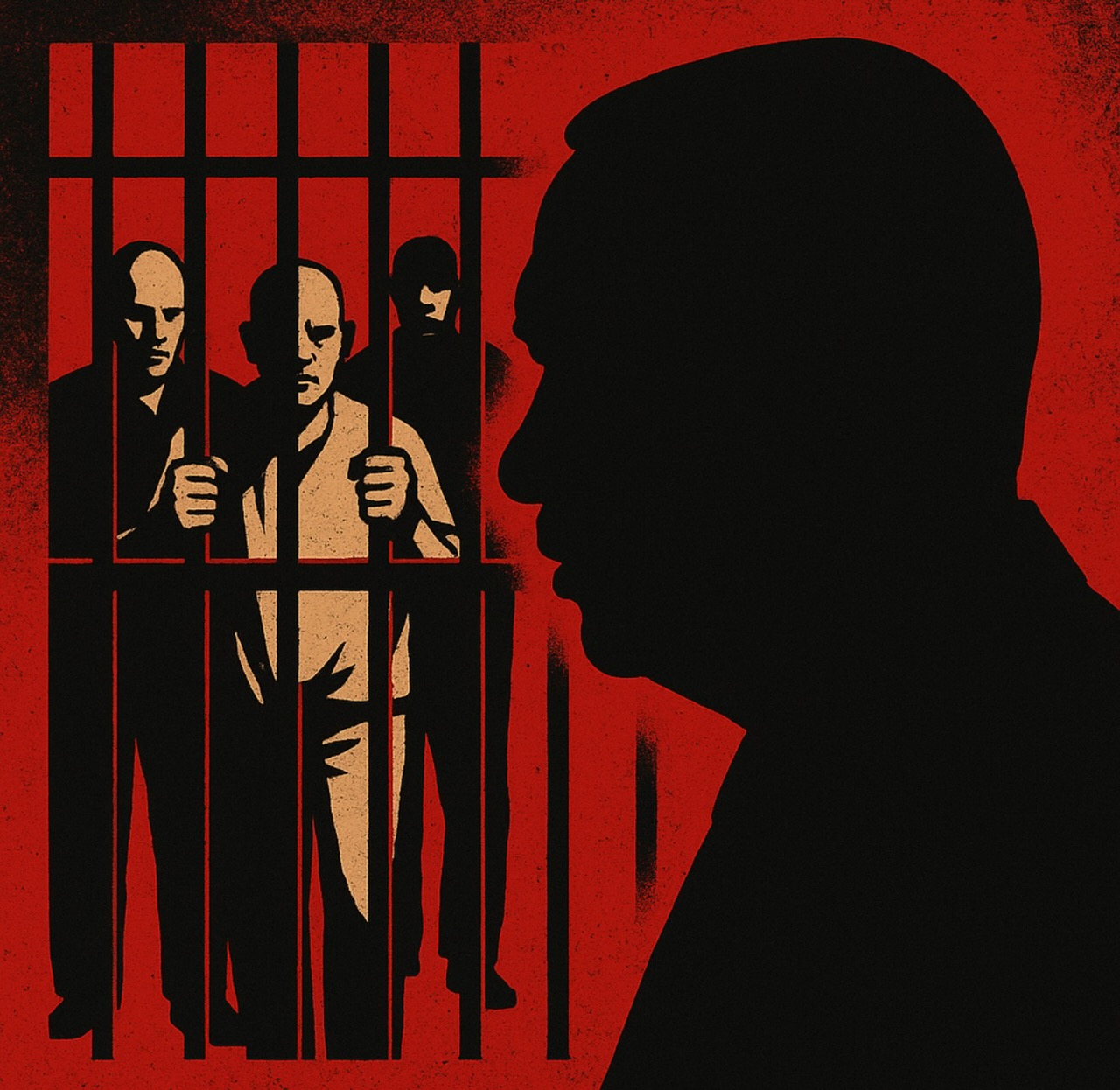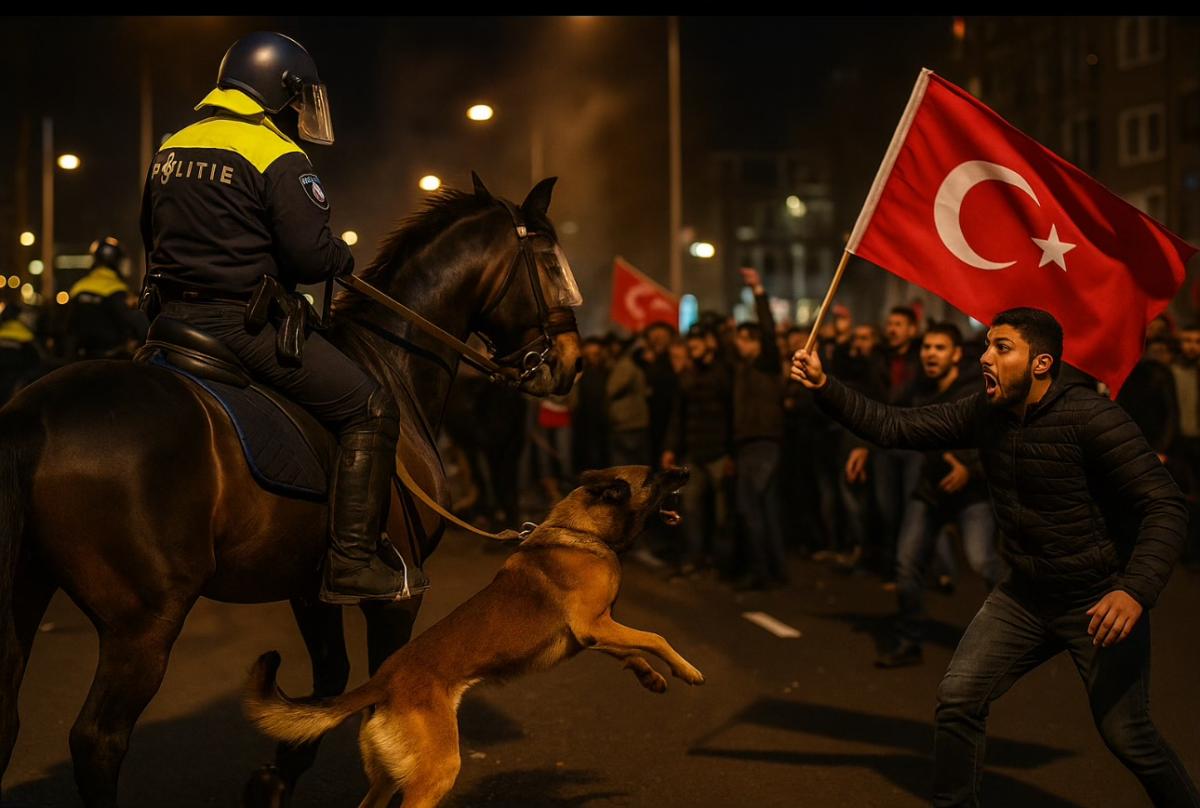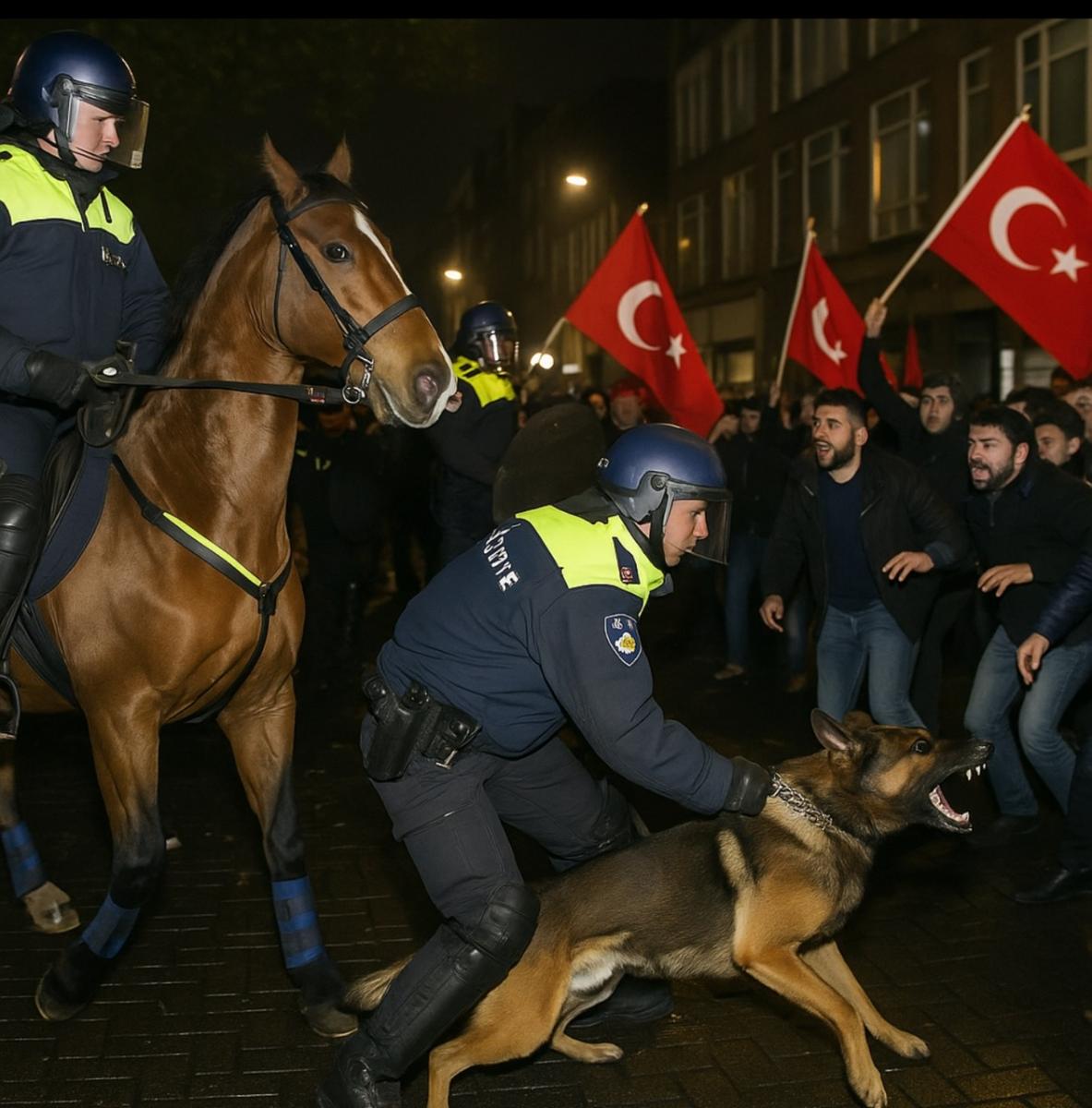
When Diplomacy Became Riot: My Night in Rotterdam and the Rise of Erdoğan’s Reach
On the night the streets of Rotterdam roared, I stood in my home and could hear the helicopters, dogs barking, riots exploding around the Turkish consulate. Police swept the consular quarter while crowds shouted and objects flew. I lived very close to the House of the Consul. I remember thinking: this is not how you treat a NATO partner, and this is not what is democratic.
That memory comes back with fresh pain today when I hear Donald Trump praising Erdoğan in the Oval Office, claiming that “everybody respects him in Europe and the world.” It is not true. Everybody does not respect him — in fact, most despise him. Even many Turkish people themselves hate him. He is not a hero. He is a dictator. What he seeks is not peace but power, channeling Islam into jihad on his terms. It is the same spirit that once drove the Ottoman Empire into conquest, that left behind the genocide of the Armenians. He wants to do the same again — and his ultimate goal is also against Israel. That is his goal.
The Rotterdam standoff in context
Turkey’s government had mobilized to rally the diaspora in support of a 2017 referendum that would expand presidential powers. European countries, including the Netherlands, feared that open campaigning could inflame local tensions and even interfere with domestic politics. When the Dutch refused landing rights for Minister Mevlüt Çavuşoğlu and intercepted Family Minister Fatma Betül Sayan Kaya as she tried to enter from Germany, confrontation followed. Police arrested members of Kaya’s security detail, and protest crowds that gathered nearby were pushed back by riot units. The images of horses and helicopters that night are seared into the memories of local residents — I was one of them.
Diplomatic rupture — and Rutte’s new role
Erdoğan responded in very sharp rhetoric: calling Dutch “fascists” and “Nazi remnants,” accusing the Netherlands of past crimes, demanding apologies.
- The Netherlands, led by Mark Rutte, condemned the insults and said Erdoğan had crossed a diplomatic line.
- The diplomatic relations cooled; the Dutch ambassador was withdrawn at one point.
- Over time, relations normalized (2018), ambassadors reinstated.
This matters even more today: the same Mark Rutte who stood his ground in 2017 is now the Secretary General of NATO. His direct experience with Erdoğan’s confrontational tactics gives him a unique vantage point inside the Alliance — and raises the stakes as NATO navigates relations with a member state whose leader openly jails journalists, suppresses dissent, and has shown willingness to export domestic political battles into allied territory.
Beyond the consulate: consolidation of power at home
The Rotterdam scenes weren’t an isolated diplomatic flare — they were part of a broader post-2016 trajectory inside Turkey. After the failed coup attempt in 2016, Ankara declared a state of emergency and launched wide purges across the judiciary, civil service and academia. Media organizations were shuttered and editors, reporters and columnists were arrested under sweeping anti-terror laws and under Article 299 (the law criminalizing “insulting the president”). International watchdogs documented an alarming spike: in 2016–2018 Turkey topped global lists for jailed journalists, and rights groups continue to flag patterns of criminal prosecutions used to silence dissent.
Political campaigning abroad and the rule-of-law problem
Turkey’s practice of mobilizing support among expatriates — sometimes in defiance of Turkey’s own laws restricting foreign campaigning — created diplomatic friction across Europe. For host democracies, the calculus was painful: uphold public-order rules and face angry invective from Ankara, or allow rallies that could tilt local tensions and inflame immigrant communities. The Dutch decision in 2017 to prioritize public order — even at the cost of a sharp diplomatic rupture — reflects how fraught that balance became.
What this means for press freedom and civil liberties
The jailing of journalists and the legal tools used to prosecute critics are not distant abstractions: they are the mechanism by which shrinking democratic space becomes normalized. Organizations such as the Committee to Protect Journalists recorded Turkey as the country with the highest number of jailed reporters in the years after 2016. For those of us who lived through nights of helicopters and water cannons, the domestic repression and the international assertiveness feel like two faces of the same problem: a leader unwilling to tolerate dissent at home and willing to push boundaries abroad.
Erdoğan and Israel — escalating rhetoric
In recent years Erdoğan’s rhetoric toward Israel has grown sharper, with statements during mass prayers and official addresses that many observers characterize as menacing. These pronouncements have raised alarm in Washington, Jerusalem, and among Turkey’s NATO partners. Critics argue that language calling for Israel’s destruction or describing its actions with genocidal terms crosses from diplomatic criticism into rhetorical escalation with dangerous implications.
And now: the Oval Office and a controversial embrace
On September 25, 2025, U.S. President Donald Trump hosted President Erdoğan at the White House, publicly praising Erdoğan’s leadership and signaling willingness to restore deeper military and diplomatic ties — including talk of possible F-35 and F-16 discussions and sanctions relief — despite Ankara’s record on human rights and press freedom. To many who lived through the Rotterdam night and to the families of journalists and political prisoners in Turkey, the praise feels like a dismissal of their suffering. Strategic interests do not erase authoritarian practices; diplomacy must not whitewash repression.
To sell F-35s and F-16s to Turkey is to give the murder a tool to kill Israel.
A stronger closing — a prayer, a warning, and a demand for conscience
President Trump needs our prayers. He crossed a line today by giving extraordinary honor to a man who should not be honored. This is not only about that night in Rotterdam — this is about a long record of repression and revisionism.
Erdoğan has put laws and teaching in Turkey that the Holocaust — the murder of six million Jews by Hitler — never existed. He says that history was changed. He also denies the genocide of the Armenians. This is not a small distortion; it is a deliberate rewriting of history that insults the dead and poisons the living.
At the same time, Turkey still holds elections — but they are elections under fear, censorship, and arrests of journalists and opposition leaders. That is not democracy. That is dictatorship. A man who erases the record of past atrocities, jails his critics, and manipulates elections is a dictator — and those things should never be praised as marks of a great leader.
We must pray for wisdom for President Trump and for the leaders around him: that they would hear the voices of those who suffered; that they would weigh human rights and historical truth alongside geostrategic interests; and that they would not lend prestige to men whose domestic record is one of crushing dissent and denying the greatest atrocities of the last century. May the Holy Spirit give them discernment before further honors and weapons are conferred.

